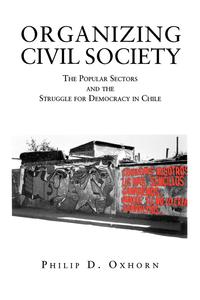Owing to a poor economy and renewed political repression, Philip Oxhorn was one of only a handful of individuals able to conduct research in Chilean shantytowns in the 1980s. His book focuses on the emergence of popular organizations among the Chilean urban poor under the Pinochet regime and their place in the larger political system. Oxhorn develops an original theoretical framework for understanding the emergence of popular organizations and their potential for forming a new social movement that can contribute to the democratization of civil society independently of a change in regime. He then offers a comprehensive account of popular sector organizational activity in Chile over the past twenty years, based on extensive interviews with shantytown organization leaders and political party elites, various primary documents, and participant-observer experiences carried out since 1984. He finds, paradoxically, that changes in the political system provided the necessary conditions under which a new social movement representing the urban poor could emerge, but simultaneously made such an emergence very difficult because of the problems that political parties faced after prolonged political repression. Oxhorn"s conclusions offer insights for understanding Chilean democracy today, as well as the nature of popular social movements among the urban poor and their relations with political parties in Latin America more generally. Это и многое другое вы найдете в книге Organizing Civil Society - Ppr (Philip Oxhorn)
Organizing Civil Society - Ppr Philip Oxhorn
Подробная информация о книге «Organizing Civil Society - Ppr Philip Oxhorn». Сайт не предоставляет возможности читать онлайн или скачать бесплатно книгу «Organizing Civil Society - Ppr Philip Oxhorn»
